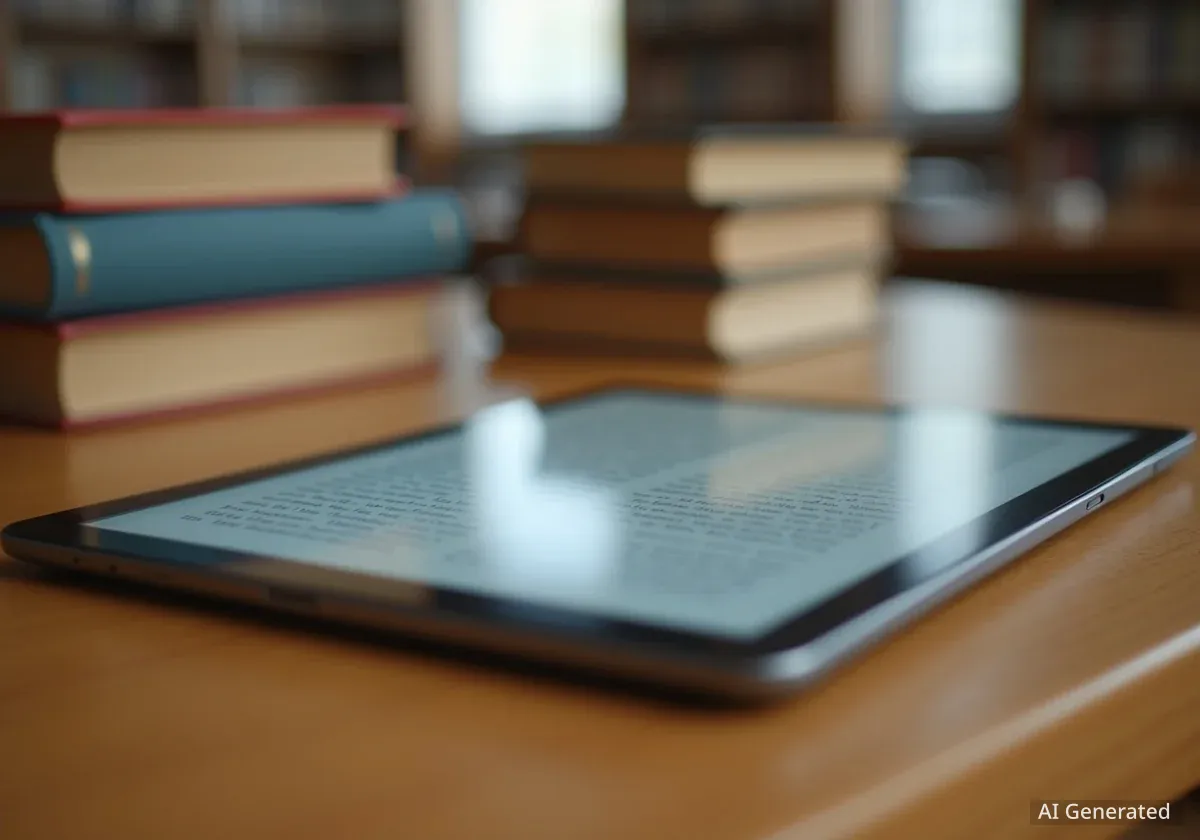A school district in Texas has temporarily suspended student access to a popular digital reading application and canceled upcoming book fairs. The decision by Harlingen Consolidated Independent School District (HCISD) is a direct response to a new state law, Senate Bill 13, which has introduced stricter regulations for school library materials.
Key Takeaways
- Harlingen CISD has paused in-school access to the Epic Reading App and canceled Scholastic Book Fairs.
- The move is a precautionary measure to comply with Texas Senate Bill 13, which took effect September 1.
- SB 13 grants parents more control over library materials and sets new rules for book acquisition by schools.
- Other Texas school districts, like Brownsville and La Joya, are continuing to use similar digital reading platforms while ensuring content alignment with approved lists.
New State Law Prompts Precautionary Measures
Harlingen CISD officials described the suspension of the Epic Reading App and Scholastic Book Fairs as an act of "an abundance of caution." In a statement, a district spokesperson confirmed the temporary pause is intended to ensure all reading materials provided to students meet the requirements of the new legislation.
The district explained that the pause is not a reflection on the educational value of these programs but a necessary step to review their compliance. Senate Bill 13, which passed during the state's regular legislative session, applies to both physical books and digital content available through school-provided platforms.
The law was created to address legislative concerns about the content of materials in school libraries. It strengthens parental rights and establishes a more transparent process for how schools select and purchase new books.
Understanding Senate Bill 13
Effective September 1, Senate Bill 13 mandates several changes for Texas school libraries. It requires that parents have the ability to restrict their child’s access to specific library materials. The law also forces districts to publicize lists of planned book purchases for 30 days before a school board can vote to approve them.
Impact on Student Reading Access
The decision has raised concerns among some parents about potential barriers to reading for students. Noelia Barrera, a parent in the district and a member of the Parent Teacher Association, expressed understanding for the district's cautious approach but also voiced concern over the consequences.
"Research shows that the more that children read, the better they do on tests, and we don’t have to teach to a test. Their critical thinking goes up, their problem-solving, and their ability to take one situation and put it into another," Barrera stated.
She emphasized that digital apps like Epic allow avid readers to access more books than the one or two they might be allowed to check out from the physical library each week. Barrera believes the district's action stems from the challenge of reviewing the vast number of titles available on these digital platforms.
Educator Group Opposes Law
The Texas American Federation of Teachers has publicly opposed SB 13. The organization raised concerns that the law's "vague requirements" could lead to censorship, delays in student access to educational resources, and the politicization of school library collections.
Varying Responses Across Texas School Districts
The implementation of SB 13 has been left to individual school districts, leading to different approaches across the state. While Harlingen CISD has chosen to pause access, other nearby districts are maintaining their digital reading programs.
Officials from both the Brownsville and La Joya school districts confirmed they will continue to allow student access to similar third-party reading apps. A representative from La Joya ISD stated that while the platforms are not banned, the district works to "ensure that the titles available through them align with the approved book lists."
New Guidelines for Book Selection
Under the new law, school districts must now follow a more public process for acquiring new library materials, whether they are purchased or donated. This includes posting a complete list of proposed acquisitions for public review for 30 days prior to any school board vote on the matter.
The Texas Education Agency (TEA) has issued guidance to help districts navigate the law. For digital platforms, the TEA recommends implementing an opt-out feature that allows parents to easily restrict access for their children.
Parental Involvement and Advisory Councils
Senate Bill 13 also includes provisions for increased community involvement through the formation of School Library Advisory Councils (SLACs). These councils are not mandatory but can be established if a petition is signed by a specific number of parents.
- A council can be formed if parents of at least 10 percent of the students in the district sign a petition.
- Alternatively, a petition from 50 or more parents of students in the district, whichever number is smaller, can also establish a council.
Once formed, these advisory councils can review proposed library materials and make recommendations to the school board. This structure provides a formal channel for community input on library collections.
Barrera encouraged parents to become more involved by joining their local PTA and communicating directly with school administrators. "We need to ask more questions," she said. "Send those emails if you’re concerned, because at the end of the day, we all just want what’s best for children."





